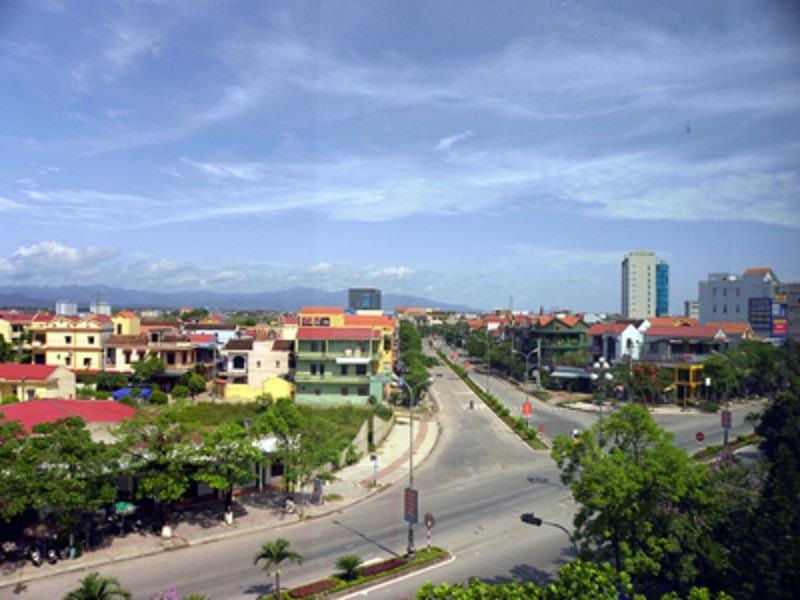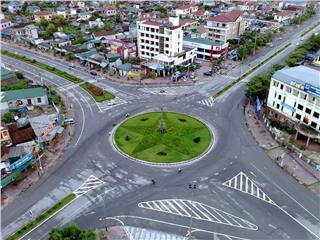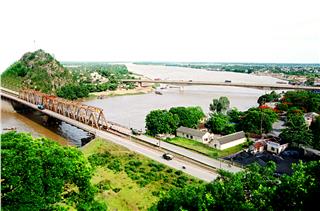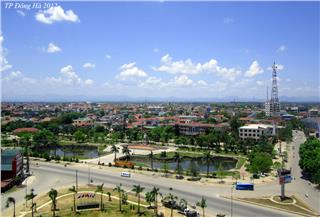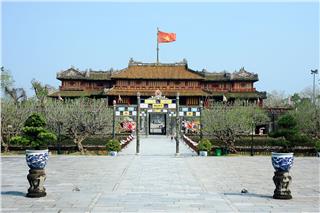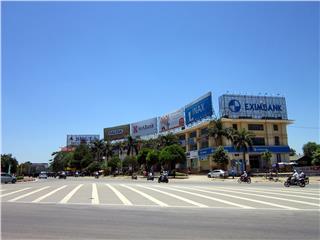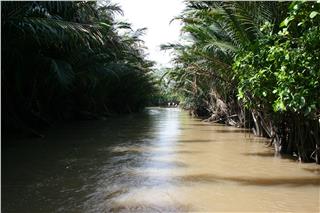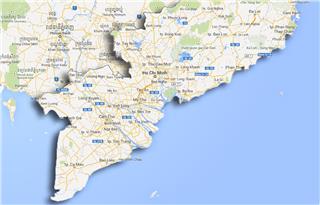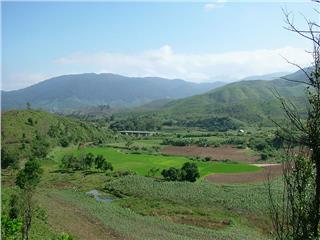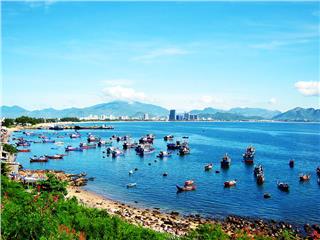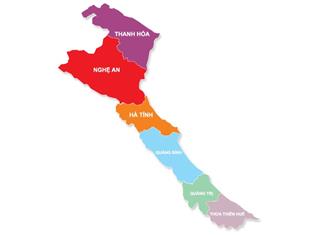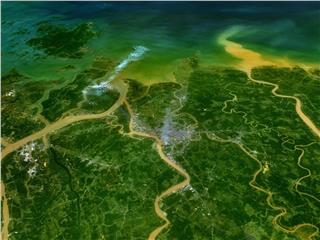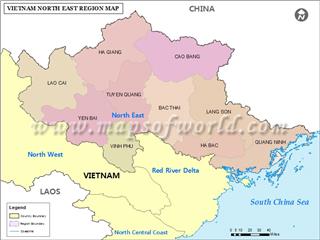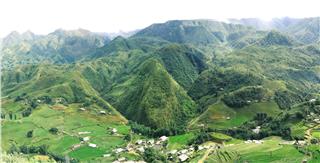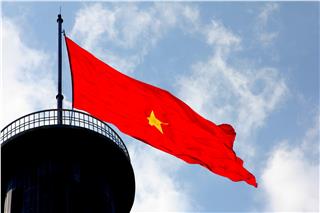Quang Binh is a province in North Central Coast Vietnam. Quang Binh is located at the narrowest place according to the east-west direction of the S-shaped strip of Vietnam (40.3 km following the shortest path from the Lao border to the South China Sea).
Quang Binh – the land of acculturation between Sa Huynh Culture and Dong Son Culture in the prehistoric times – is a frontier of Van Lang - Au Lac country. It is a former land witnessing reclamation process, establishment of the villages to the south of Dai Viet, as well as the boundary fighting during Trinh - Nguyen war, this was also a large rare base of the South in the revolutionary struggle against American Emperor. Quang Binh has international traffic routes running through as National Route 1A, Ho Chi Minh Highway, North-South railway. In addition, the province has waterway (Hon La seaport and Gianh seaport and airway (Dong Hoi Airport). It shares border with Ha Tinh Province in the north, Quang Tri Province in the south, the South China Sea in the east, Khammuane Province in the west and Savannakhet Province (Laos) in the southwest with Truong Son Mountain range as a natural border.
Geography
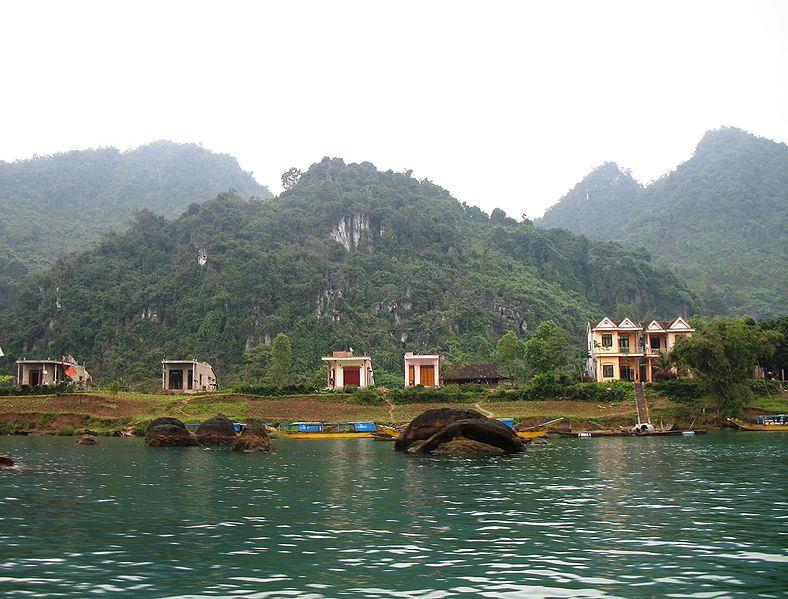
The natural area of Quang Binh is 9,065.27 km². The mainland of Quang Binh is situated between 16°55’ to 18°05’ north latitude and 105°37’ to 107°00’ east longitude. Quang Binh owns 116.04km long coastline in the east, and has 201.87km long border line with Laos in the west, Hon La Seaport, Dong Hoi Airport, National Route 1A, Ho Chi Minh Highway, North-South Railway, National Route 12, and provincial route No.20, No.16 running from West to East, through Cha Lo International Border Gate and some border gates with Laos. Quang Binh terrain is narrow and steep from west to east. 85% of Quang Binh's nature area is mountains and hills. The province is divided into basic areas: high mountainous area, hill and midland, plain and coastal sand area. Quang Binh is located in the monsoon tropical climate and affected by the climate of the north and south, so it is divided into two distinct seasons: the rainy season lasts from September to March. The annual average rainfall ranges 2000-2300mm/ year. Rain concentrates on September, October and November. The dry season is from April to August with the average temperature of 24°C - 25°C. The hottest months are June, July and August.
History
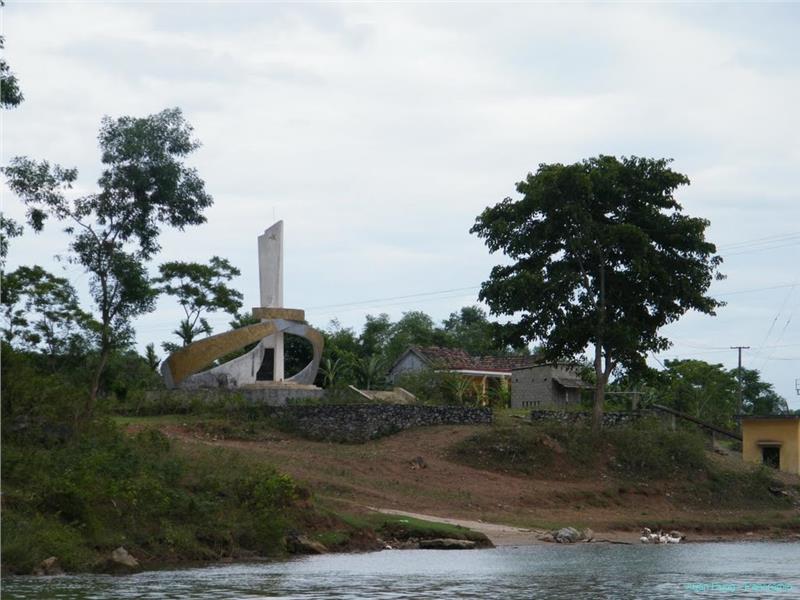
Archaeological excavation in this area proved that human lived in Quang Binh since the Stone Age. Many artifacts as ceramic vases, stone tools were found here. In 1926, Madelein Colani, a French archaeologist found many artifacts in caves in the west of Quang Binh. She concluded that Hoa Binh Culture presented in this area. Under Le Trung Hung, Quang Binh was named Tien Binh. The central and the south of Vietnam (from Ngang mount pass to Binh Thuan Province was part of the Champa Kingdom. During that time, wars between Champa kingdom and Dai Viet were frequent. Majority of the wars were started by Champa Kingdom, who was then, stronger than Đại Việt. Quang Binh became Dai Viet’s territory in 1306 A.D. following the arrange marriage of the Tran Dynasty princess Huyen Tran to the Champa king, Jaya Sinhavarman III. In 1604, it was renamed Quang Binh. Nguyen Phuc Khoat Lord divided Quang Binh into 3 districts Bo Chinh (dinh Ngoi), Muoi (Luu Don) and Quang Binh (dinh Tram). In 1976, 3 provinces of Quang Binh, Quang Tri and Thua Thien were merged into Binh Tri Thien province, and in 1989 the province was separated as before.
Population
Quang Binh population in 2013 is 863,350 people. Majority population of Quang Binh is Kinh ethnic people. Ethnic minorities belong to 2 major groups of Chut and Bru-Van Kieu including ethnic people: Khua, Ma Lieng, Ruc, Sach, Van Kieu, May, Aren, etc who live mainly in 2 mountainous districts of Truyen Hoa and Minh Hoa, and some western communes of Bo Trach, Quang Ninh, Le Thuy. Population is unevenly distributed, including 84.80% in rural areas and 15.20% in urban areas.
Administration
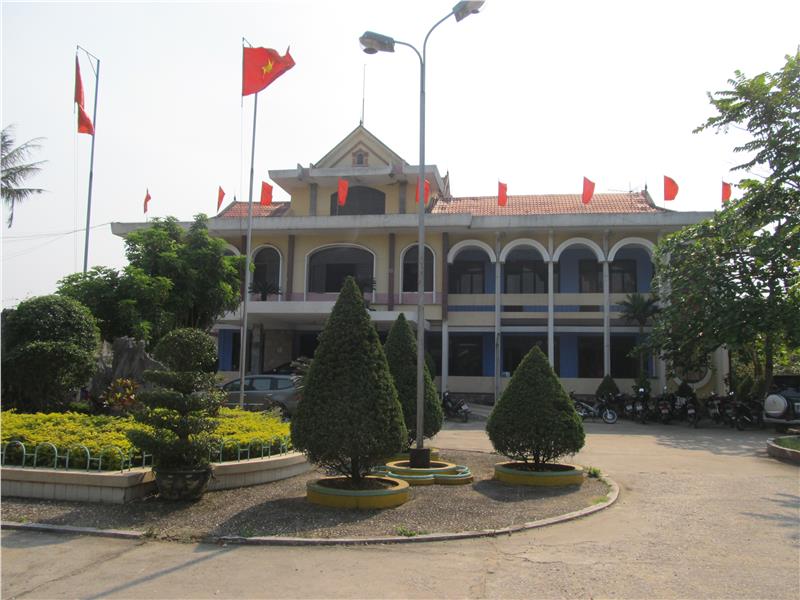
In addition to Dong Hoi City - the province's administrative center, Quang Binh has 7 districts and towns (Bo Trach, Le Thuy, Minh Hoa, Quang Ninh, Quang Trach, Tuyen Hoa and Ba Don town) with a total of 159 communes, wards and towns.
Culture
Quang Binh is the civilized land, with Bau Tro cultural relic, vestiges of the Hoa Binh Culture and Dong Son Culture, and many historical sites such as Quang Binh Quan, Luy Thay, Rao Sen, citadel and palaces of Trinh-Nguyen period. Famous places in two wars against aggression are Cu Nam, Canh Duong, Cha Lo, Cong Troi (Heaven Gate), Xuan Son, Long Dai, Ho Chi Minh Highway and so on. Through ups and downs of history, there are many well-known cultural villages formed and handed down from generation to generation like "8 famous villages", "Son-Ha-Canh-Tho-Van-Vo-Co-Kim". Many eminent scholars, celebrities past and present in fields of military, culture and society are Duong Van An, Nguyen Huu Canh, Nguyen Ham Ninh, Hoang Ke Viem, and Vo Nguyen Giap. Moreover, Quang Binh is the intersection of two ancient cultures Vietnam - Champa, expressed in relic sites dating back five thousand years that were unearthed in Bau Tro, north of Dong Hoi.
Economy
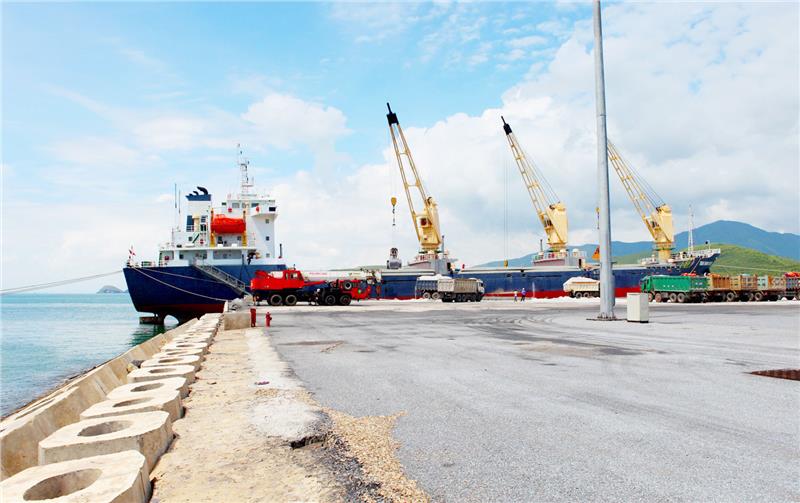
With unity and determination of the Party, the people in the province; the leadership, direction of the province, People's Council and People's Committee; the attention and help of the Government, ministries and central agencies, Quang Binh economy in 2014 reached significant results on all aspects. Agriculture, forestry and fishery achieved relative results, some targets increased high over the same period. This result reflects the positive changes in the internal structure of agriculture, forestry and fishery. The total production value of agriculture, forestry and fishery was estimated at 7,040.8 billion dong, increasing by 3.5% compared to 2013, reaching 101.2% of the plan.
2014 was still a difficult year for the industrial production, People's Committee continued to implement synchronization solutions in order to remove difficulties for enterprises and boost the development of production and business. Along with the efforts of enterprises, the industrial production in the province gradually recovered and grew significantly. In 2014, the industrial production value increased by 10%, achieving 100% of the plan, the index of industrial production (IIP) increased by 8.9%. Domestic commercial operations in 2014 met many difficulties, the purchasing power decreased and the market was gloomy. Although total retail sales of goods and services in 2014 increased over the same period but did not achieve the plan, estimated at 16,880 billion, up 13.3% over the same period, reaching 96.2% of the plan.
The export turnover achieved 150.1 million USD, reaching 100% of the plan, increasing 8.5% over the same period. The import turnover was estimated at 110.2 million USD, reaching 220.3% of the plan and increasing 4.3% compared to the same period. Quang Binh tourism has significantly grown and breakthroughs in number, the tourism promotion was interested; network of accommodation facilities developed rather, service quality was improved.
Society
Implement well the programs of Provincial Standing Committee of basic and comprehensive innovation in education and training to meet the requirements of industrialization and modernization. The socialization of education is concerned; the school facilities are focused on investment. The network of schools and classrooms at all educational levels, training facilities continue to be strengthened and developed reasonable, in order to meet the learning needs of the people. The management of the state of science and technology has been strengthened. Quality of health care has gradually improved. The prevention and control disease is enhanced; the implementation of measures to prevent disease is directed timely. Create jobs are interested in directing; vocational training was focused. In 2014, the province created jobs for 3.33 thousand labors, reaching 104.1% of the plan.
Tourism
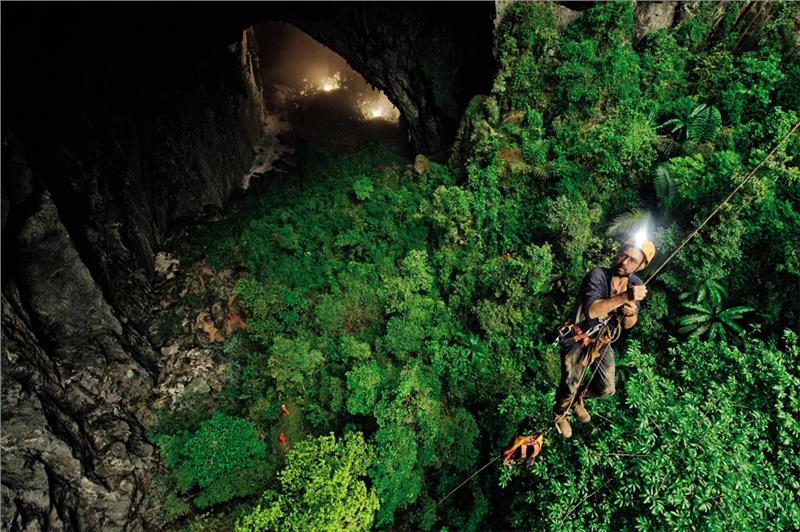
Quang Binh - the intestine of the Central region, is the charming place with many famous scenic spots captivating people, historical monuments and the world's natural heritage along many delicious specialties. Located about 7km far from Ngang Pass to the south in Quang Trach District, Vung Chua - Dao Yen is the resting place of Great General Vo Nguyen Giap surrounded by 3 islands Hon La, Hon Gio and Hon Nom (Yen Island). Quang Binh Quan (Dong Hoi city) is an architectural work including gate, bastion system built by Nguyen Lords in 1630 to protect the capital of Phu Xuan. It was restored many times, and bacome a characteristic symbol of the history and culture of Quang Binh province.
Nhat Le Beach is must-see place when coming to Quang Binh, located about 2km from the center of Dong Hoi City to the northeast. Unspoiled natural landscape with long sandy beaches and clear blue water reflecting coconut trees, each time of day brings its own beauty. Bau Tro Freshwater Lake located between sand hills is the famous relic with archaeological ruins of the ancient Vietnamese. Legend has it that it is the footprints of a gaint left when passing through this land. Da Nhay Beach situated about 30km from Dong Hoi City is a stone population with exotic shapes.
Phong Nha - Ke Bang National Park is world natural heritage located about 50km far from Dong Hoi City to the northwest. Besides the values of geology, topography, geomorphology, nature gifted for this place mysterious and majestic landscapes hiding many secrets of nature. Caves like the splendid castles in limestone mountains formed from millions of years ago. Thien Duong Cave (Paradise Cave) in Son Trach commune, Bo Trach district dubbed as the underground palace is a dry cave with majestic beauty of diverse stalactites. Son Doong Cave is one of the largest natural cave found in the world. It is 9km long, 200m wide and 150m deep. Tourists coming to Son Doong will be overwhelmed by the natural masterpiece in Vietnam. The cave was formed about 2 to 5 million years ago, until now inside the cave, there is a developed underground ecosystem along with underground river and trees. Cha Lo - Cong Troi historical relic in Minh Hoa district is the land with difficult terrain, majestic mountains and is a historical -cultural relic in the system of Ho Chi Minh trail, bearing traces of war and indomitable spirit of the Vietnamese people.
Festival
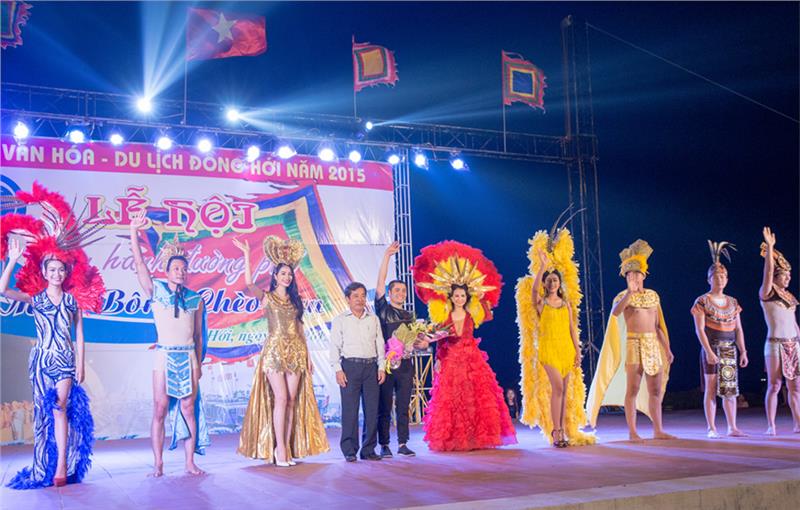
Folk festivals in Quang Binh were born in ancient times. They have unique characteristics of each region in the province. The purpose of the festival is to pray for peace and good crops, good weather, a lot of seafood caught and prosperity. Quang Binh people often organize the festivals as Fishing festival (pary for good weather, catching lots of seafood), cau mua (pray for good crop) following their own customary as fishing festivals in Hai Ninh (Quang Ninh), Bao Ninh (Dong Hoi), Canh Duong (Quang Trach), Ly Hoa (Bo Trach)... Also, in Quang Binh, there are also various cultural festivals with the aim of amusement, entertainment such as the boat contest, boat race, beating drum festival, bai choi in Le Thuy, Dong Hoi. These festivals are healthy cultural activities; they are not the expression of the characteristic nuances of art in Quang Binh but also the creativity, ingenuity, agility of the people in the villages here.
